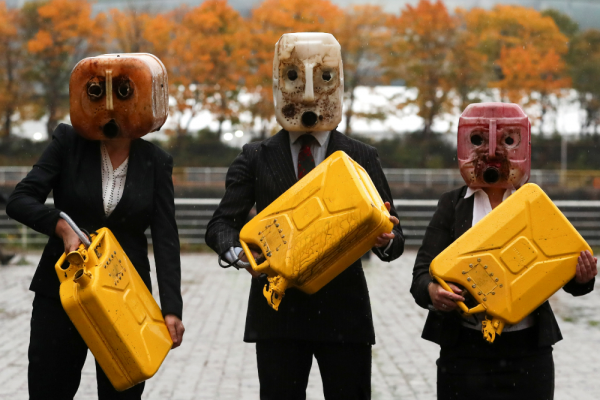Starting Oct. 31, world leaders will gather in Scotland to negotiate the terms of our future. This United Nations climate change conference, called COP26, is an opportunity for leaders to flaunt their climate actions ambition — no leader more so than President Joe Biden, who plans to attend with nearly half his cabinet. This is a show of force from the White House, an indication that political winds have shifted and the United States is prepared to be a global climate leader.
Yet, if history is any indication, strong words and political shows mean nothing if world leaders continue to ignore the realities of science. Since the 2015 Paris Agreement, the Republic of The Gambia is the only country on track to meet its commitments to reducing greenhouse gas emissions. Going into COP26, the world is on course for an increase of 2.7 degrees in global average temperature, nearly double the U.N. goal of limiting the rise to 1.5 degrees. Even after a quarter century of negotiations about climate change, world governments have failed to reverse — or even to slow — the emissions of greenhouse gases.
At the center of COP26 is not a political question, but a moral one: Will leaders prevent further climate catastrophes or will they sell off the future of God’s people and planet?
COP stands for “conference of the parties,” with “parties” including the nations that agreed to the U.N.’s 1992 climate treaty; the first official conference was in Berlin in 1995 and parties have met almost annually ever since. This year’s conference — the 26th conference, hence COP26 — is the most important since the Paris Agreement of 2015. That agreement, adopted at COP21, launched the process of countries seeking to progressively reduce emissions to keep warming below the critical 1.5-degree threshold in a five-year cycle of increasingly ambitious goals. This year’s conference is the first opportunity since Paris for leaders to submit stronger targets for reducing their emissions.
While every country submits its goals, the price of reducing emissions should not fall equally on everyone. The world’s biggest polluters, including the United States, must make big commitments to do their fair share to cut greenhouse gas emissions. The countries that contribute the most to climate change have the greatest moral responsibility to cut emissions. Yet, it’s often the political math, not the moral math, that wins the day. Rather than serve as beacons, high-emitter countries have entered these conventions with their own self-preservation in mind. Low-emitter countries need funding and resources from wealthy nations to adapt to climate impacts, but their pleas have fallen on deaf ears.
While COP26 will set the stage for the next five years of emissions reductions, it is only effective if all countries mobilize to meet their targets. Nowhere is this reality more present than in the United States. As Congress whittles away the climate provisions in the Build Back Better plan, the possibility of meeting emissions targets becomes increasingly precarious. While Biden will arrive at COP26 with what Politico calls “a framework for the largest-ever U.S. investment with climate change” and may agree to more ambitious targets, his ability to meet U.S. emissions targets also depends on the willingness of Congress to pass and fund climate legislation.
To understand the moral weight of the moment, it is best to look beyond Scotland, outside of COP26. When we look to the streets, we see that young activists with the Sunrise Movement are hunger striking outside the White House, Greta Thunberg is speaking truth about the need for moral leadership, and faith communities around the world are taking direct action for climate.
In a recent speech for the Youth4Climate summit in Milan, Thunberg expressed the kind of hope we need in this moment: “We can no longer let the people in power decide what hope is. Hope is not passive. Hope is not blah, blah, blah. Hope is telling the truth. Hope is taking action. And hope always comes from the people.”
This hope is biblical hope. It is, as we read in 1 Peter 1:13, a living hope, one that is not naively optimistic about the future. This biblical hope recognizes suffering and responds with understanding and concerted acts. Biblical hope requires that we “gird up the loins of [our] minds for action.”
The agreements at COP26 are critical for shaping the next half-century of climate action. The goals set by our leaders will set the parameters of what we fight for and what we fight against. Yet, it is what we do on the other side of the conference that matters most. Gird up your loins for action now, because we have work to do.
While the political center of climate action is concentrated in conference rooms and plenary halls in Glasgow, the moral center is found in the streets and in the soil — it is found among the communities fighting for climate action as if it’s a fight for our lives.
Because it is.
Got something to say about what you're reading? We value your feedback!








